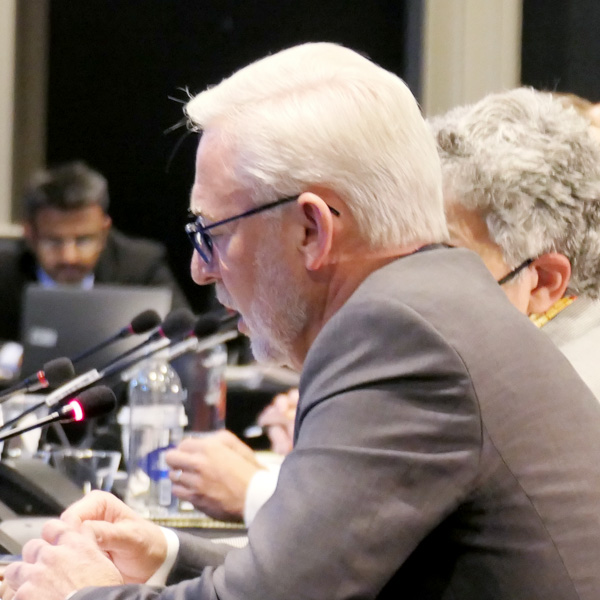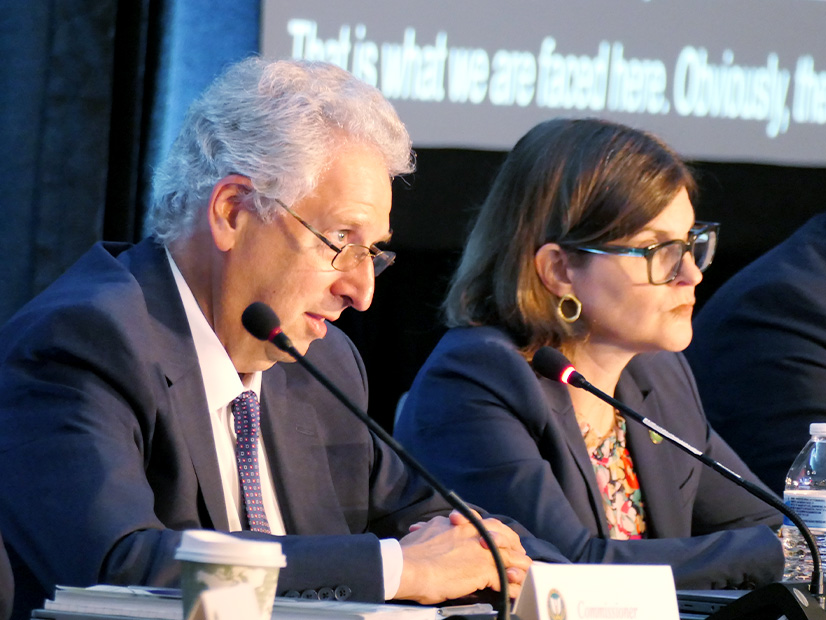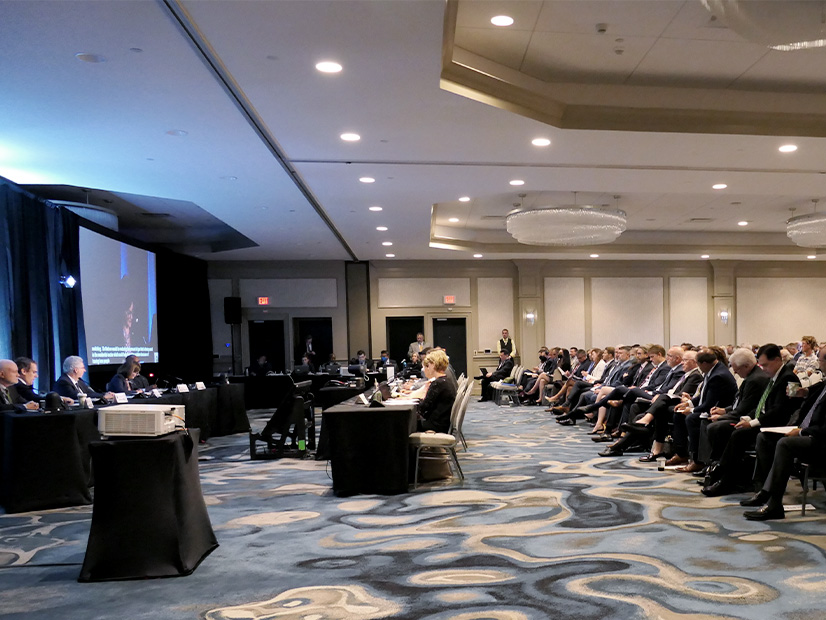Nearly 10 years ago, FERC convened a gas-electric conference in Boston to talk about the issues facing New England’s electric grid in the winter.
Last week, the federal agency came to New England again. The room was bigger, and some of the terminology has changed. Energy technology has evolved and, in many cases, improved tremendously.
But the conversation was strikingly similar, according to New England Power Generators Association President Dan Dolan, who was in attendance for both.
“It’s shocking and terrifying how close the notes and talking points we had for that one could be reflected today,” Dolan told FERC commissioners on Thursday at a conference center in Burlington, Vt.
Even the more specific issues around LNG supply have been identified for years, Dolan said, with no tangible action to solve them in the long term.
Experts, analysts and lobbyists laid out the problem for FERC commissioners, who surely knew what it was before they walked into the room: a resource adequacy crisis fueled by New England’s unique geographic and political constraints, which ISO-NE fears will be exacerbated by the states’ push to replace fossil fuels with clean energy.
Largely acknowledged throughout the conversation was that it’s too late to do anything for this winter.
“‘Hope’ is not a strategy,” said Richard Paglia, vice president of U.S. marketing at Enbridge. Later, NERC CEO Jim Robb echoed him: “‘Luck’ is not a strategy.”
 ISO-NE CEO Gordon van Welie speaks to FERC regulators. | © RTO Insider LLC
ISO-NE CEO Gordon van Welie speaks to FERC regulators. | © RTO Insider LLC
But that’s essentially what ISO-NE has accepted as its position for this year: hoping that, like last winter, the region is lucky enough to avoid the most extreme cold, which the grid operator says could lead to rolling blackouts.
An exchange between ISO-NE CEO Gordon van Welie and FERC Commissioner James Danly hinted at one possible move that the commission could make this year: initiating a Federal Power Act Section 206 proceeding to force some sort of action from the grid operator.
But van Welie urged the commissioners to be cautious about that option and only use it if it involves clear direction.
Tomorrow’s Problem
The long-term solution to the region’s challenges depends on who you ask.
The natural gas companies and their allies present at the meeting want to build more gas infrastructure — not necessarily new pipelines, but potential brownfield development, like changing out pipes for larger ones or adding compression, as Paglia suggested.
There was also substantial discussion about making sure that operation continues at the Everett LNG terminal, which ISO-NE highlighted in a recent problem statement, arguing that the facility is vital to the region’s energy security. (See ISO-NE: Reliability Still Depends on Mass. LNG Import Terminal.)
But others say the clean energy transition brings opportunities to maintain grid reliability in the same fell swoop as decarbonization. (See related story, Clean Energy Groups Don’t Buy ISO-NE’s Gas Reliance).
“We’re taking our eyes off the prize,” Liz Delaney, of solar and storage developer New Leaf Energy, told commissioners. “We need to resolve the near-term issue, and it’s complicated, but at the same time we need to focus on the market mechanisms that are going to get us through the energy transition.”
It’s not just long-duration storage that can help, she said.
“Short-duration battery storage does have a role to play in supporting winter reliability. It’s not the end-all and be-all. But we have miles to go in terms of being able to understand how to optimize battery storage,” Delaney said.
Vermont Department of Public Service Commissioner June Tierney also urged policymakers not to skate past demand response as a powerful grid management strategy.
She pointed to the recent energy emergency in California, which saw significant conservation efforts help CAISO avoid rolling blackouts during an unprecedented heat wave. (See related story, California Runs on Fumes but Avoids Blackouts.)
“Let’s not underestimate the people of the United States. Let’s not underestimate the people of New England,” Tierney said. “If they’re called upon, as millions of Californians were on their cell phones, to reduce demand immediately, they will respond.”
 FERC Chairman Richard Glick (left) and FERC Commissioner Allison Clements listen as panelists talk about New England’s winter reliability problems. | © RTO Insider LLC
FERC Chairman Richard Glick (left) and FERC Commissioner Allison Clements listen as panelists talk about New England’s winter reliability problems. | © RTO Insider LLC
FERC Chairman Richard Glick called for a broader focus too, saying that he would like to see a focus on longer-term fixes like new generation, transmission buildout and energy efficiency.
“If we spend all our time thinking about how we’re going to keep the Everett LNG facility open … today will be a failure,” Glick said.
In the end, both the short-term LNG challenges and longer-term clean energy transition got plenty of air time at the forum. But there’s still significant anxiety in the energy sector and among its regulators about what will happen when the thermometers drop and stay low.
“If the lights go out, we’re all to blame. There’s not going to be any finger pointing because we’re all on the hook,” said Phil Bartlett, chairman of the Maine Public Utilities Commission.

